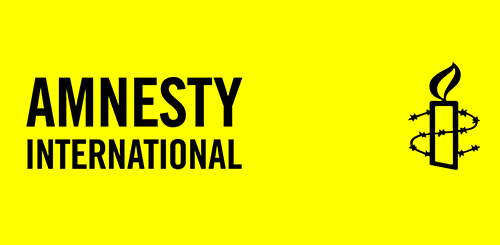Amnesty International Canada is calling on the BC government to avoid unjustified criminalization of individuals defying an injunction against protests in the proximity of two worksites on the proposed route of Kinder-Morgan’s Trans Mountain pipeline expansion.
According to media reports, B.C. Supreme Court Justice Kenneth Affleck has called on the BC Attorney General to take over prosecution of pipeline protesters.
Individuals arrested for allegedly defying the current injunction currently face prosecution as a civil action. Justice Affleck, who issued the injunction against the protests, has reportedly called for criminal prosecution.
“We share Justice Affleck’s concerns that an important public policy issue — how to respond to individuals who deliberately violate the protest injunction – should not be determined solely by whether or not a private corporation pursues enforcement. However, unnecessary criminalization of protesters is quite simply not the answer,” said Alex Neve, Secretary General of Amnesty International Canada.
The right to peaceful protest is an internationally recognized and protected human right, enshrined in numerous international human rights treaties binding on Canada. All governments and all authorities in Canada are obliged to uphold this essential right, which can and should only be restricted when absolutely necessary. Enforcement of any such restrictions should avoid criminalization except where the actions of protesters have endangered lives or property.
“The protests against the Kinder Morgan pipeline are clearly an act of conscience, motivated by a concern for our common environment and the rights of others. This, not the defiance of the court injunction, should be the determining factor in deciding upon the appropriate response,” said Neve.
The protests over the Kinder Morgan pipeline are taking place in the context of an ongoing public debate over whether this pipeline is in the public interest and whether the current plans are consistent with Canada’s national and international legal obligations to Indigenous peoples.
The federal government and the BC government have acknowledged that decision-making processes around large-scale resource development and infrastructure projects in Canada are deeply flawed and in need of overhaul. One critical flaw has been the failure to properly uphold the rights of Indigenous peoples.
A series of court cases, such as Clyde River and Northern Gateway, demonstrate that decisions made under current systems, however rigorously defended by governments, often fail the basic test of respect for the rights of Indigenous peoples. There is a broad public interest in ensuring that all levels of government will be held accountable for respecting, protecting and fulfilling these rights.
“Far too often, governments in Canada have over-reacted to land rights protests and protests perceived to threaten favoured resource development projects. It is clear that pipeline development is a high stakes issue for politicians. This means even greater vigilance is required to ensure that the right to protest is not sacrificed,” said Neve.
Background
Amnesty International’s most recent report on the state of human rights around the world expresses concern about a deeply worrying trend of attacks and shrinking space for those who speak up to defend human rights, including the right to a healthy environment. According to Amnesty’s research, in country after country, defenders of land, indigenous territory and the environment face stigmatization and criminalization in response to legitimate, peaceful protest against resource extraction projects and their impact.
+++++++++
MEDIA CONTACT: Jacob Kuehn, Media Relations, Amnesty International Canada -jkuehn@amnesty.ca / 613-744-7667 x 236





















